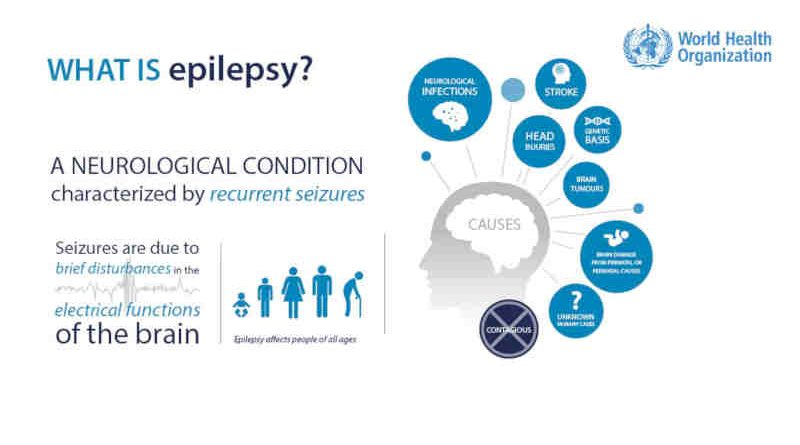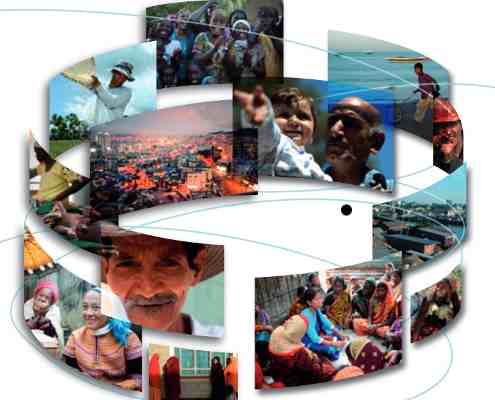Epilepsy Affects Over 50 Million People Worldwide

Epilepsy is a chronic noncommunicable disease of the brain that affects more than 50 million people worldwide. It is characterized by recurrent seizures, which are brief episodes of involuntary movement that may involve a part of the body (partial) or the entire body (generalized) and are sometimes accompanied by loss of consciousness and control of bowel or bladder function.
Characteristics of seizures vary and depend on where in the brain the disturbance first starts, and how far it spreads. Temporary symptoms occur, such as loss of awareness or consciousness, and disturbances of movement, sensation (including vision, hearing and taste), mood, or other cognitive functions.
| Download and Read RMN Publications | ||
| TechWise Today | The Integrity Bulletin | Clean Climate |
| Legal Directions | Young Learner | Real Voter |
People with seizures tend to have more physical problems (such as fractures and bruising from injuries related to seizures), as well as higher rates of psychological conditions, including anxiety and depression.
Similarly, the risk of premature death in people with epilepsy is up to three times higher than in the general population, with the highest rates of premature mortality found in low- and middle-income countries and in rural versus urban areas.
A great proportion of the causes of death related to epilepsy especially in low- and middle-income countries are potentially preventable, such as falls, drowning, burns and prolonged seizures.
WHO and its partners recognize that epilepsy is a major public health concern. WHO, the International League Against Epilepsy (ILAE), and the International Bureau for Epilepsy (IBE) have led the Global Campaign Against Epilepsy to bring the disease “Out of the Shadows.”
They provide better information and raise awareness about epilepsy and strengthen public and private efforts to improve care and reduce the disease’s impact.
Courtesy: WHO
💛 Support Independent Journalism
If you find RMN News useful, please consider supporting us.




